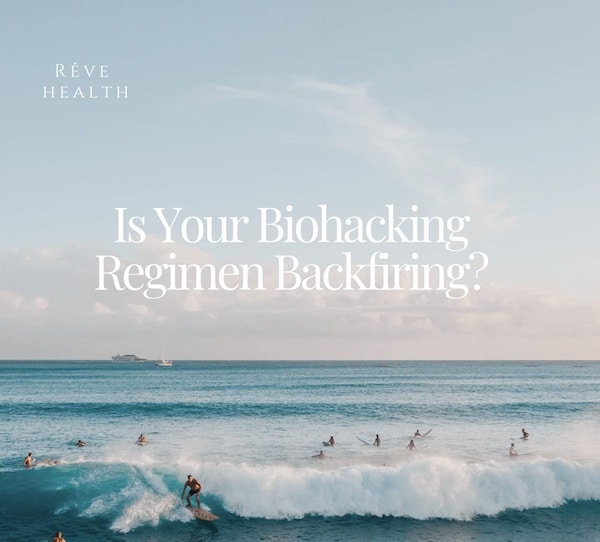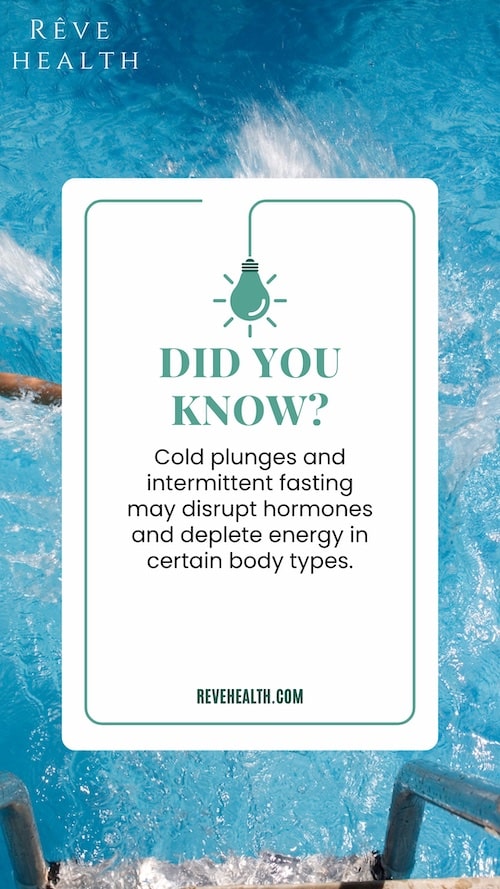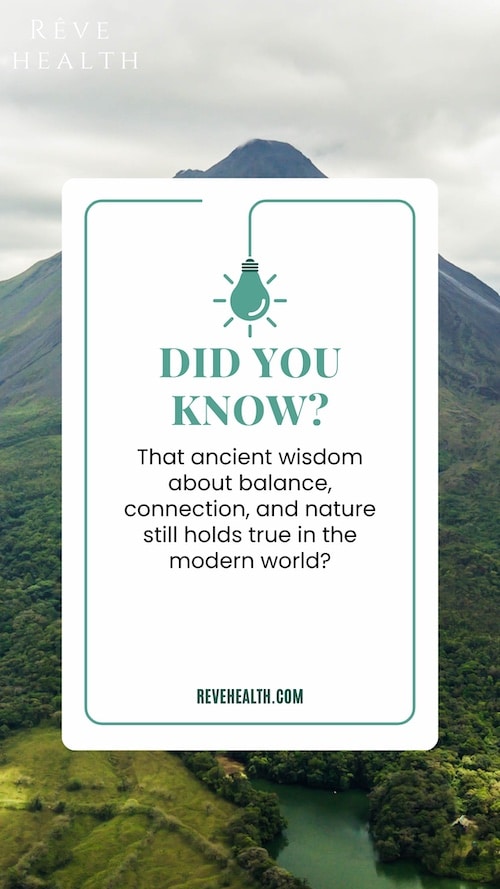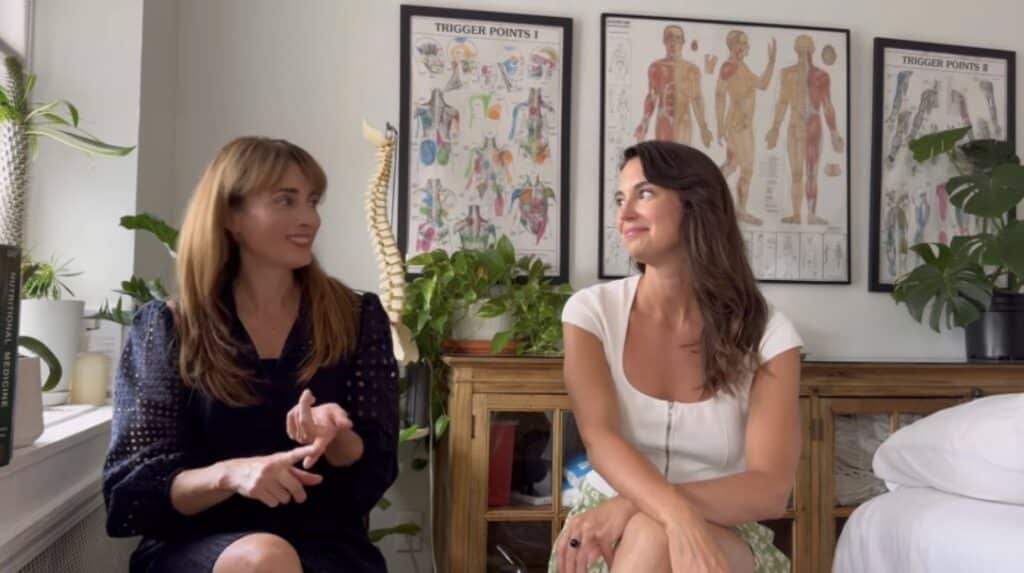Is Your Biohacking Regimen Backfiring?
Biohacking is The Way to True Health…or Is It?
Biohacking has exploded in popularity. From cold plunges to continuous glucose monitors to fasting and red light therapy, everyone we know is doing it or considering it. These tools promise better energy, sharper focus, deeper sleep, and even longevity.
But at Rêve Health, we’ve worked with hundreds of patients who’ve done all the “right” things… and still feel exhausted, inflamed, or worse than before they did anything! Why?
Because biohacking only works when it’s in sync with your body, and your body is more than a data stream.

Why Extreme Hacks Can Backfire
Cold plunges, fasting windows, and twice-a-day workouts are promoted as resilience-building tools, and they can be, but for some people, they push the body into depletion.
Harvard Medical School describes this as the paradox of “good stress”: stress that becomes harmful when applied too frequently or without recovery (Harvard Medicine Magazine).
From a Traditional Chinese Medicine (TCM) perspective, overuse of cold, heat, and restriction can drain vital energy (Jing), weaken digestion, and throw off hormonal rhythms.
In Traditional Chinese Medicine (TCM), cold plunges, especially for women, are considered detrimental, particularly during menstruation or while trying to conceive.
TCM emphasizes maintaining a warm and balanced internal environment, and cold exposure is seen as potentially disrupting this balance, weakening the body’s yang energy, and negatively impacting circulation, hormones, and digestion.
The same tool that builds vitality in one person can burn out another.

Wearables Can Actually Increase Stress
Tracking your sleep, heart rate, or recovery sounds empowering, until it becomes one more source of pressure. You wake up, check your numbers, and feel anxious if they’re “off.”’
This pattern is so common, it now has a name: orthosomnia, which means a form of sleep anxiety caused by over-fixation on tracker data. First documented by researchers at Northwestern University, it’s a clear example of tech meant to help…making things worse.
From a clinical standpoint, Stanford researchers have also warned that constant feedback can reinforce stress patterns—especially in high-performing, health-conscious individuals.
Doing Less Is Often More
Not all progress is made through more discipline or tighter control. Sometimes, healing happens by doing less.
In both modern physiology and ancient healing systems, recovery is where the real change happens:
Muscles rebuild in rest.
Hormones stabilize when we stop over-restricting.
Nervous systems regulate when we feel safe, not when we’re chasing optimization.
The key is knowing when your body is asking for stimulation, and when it’s asking for support.
That’s not something an app or protocol can answer. It takes context. Our health team often recommends less for our members, when their labwork and lifestyle is clearly pointing to inflammation or fatigue. We also will recommend taking things down a notch when we discover chronic disease states, autoimmunity, and more.
Ancient Wisdom Still Works
Long before wearables or glucose monitors, ancient systems like TCM, Ayurveda, and indigenous medicine traditions guided people using:
Seasons
Our pulse
Our breath
Food, rhythm, movement, and rest
Connection and community
Ancient wisdom is such a good place to turn to, especially when modern health feels chaotic and fragmented. Science is now catching up to many of these insights.
For example:
Yale and Harvard research has confirmed that social connection, time in nature, and emotional regulation are critical to physical health and longevity.
Stanford’s research on awe and stress resilience supports what ancient traditions taught long ago: that the body heals best in rhythm with nature and community.

YOU Have Wisdom
The most overlooked truth in the wellness world? Your own body’s intelligence.
You have so much wisdom and data insight if you listen to what your body is communicating.
When you learn to listen to how your body responds to food, stress, temperature, movement, and rest… you can use technology to enhance that awareness. Not override it.
The future isn’t more tech. It’s better discernment.
Want to learn more about physiological keys that point to whether a biohacking trend is good for you, and how to listen to your body?
Watch the recording of our webinar.

